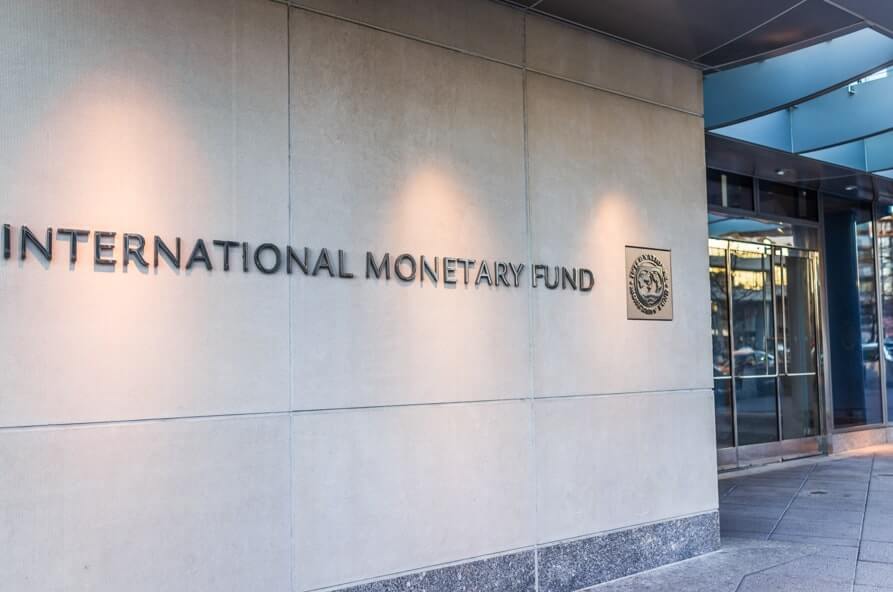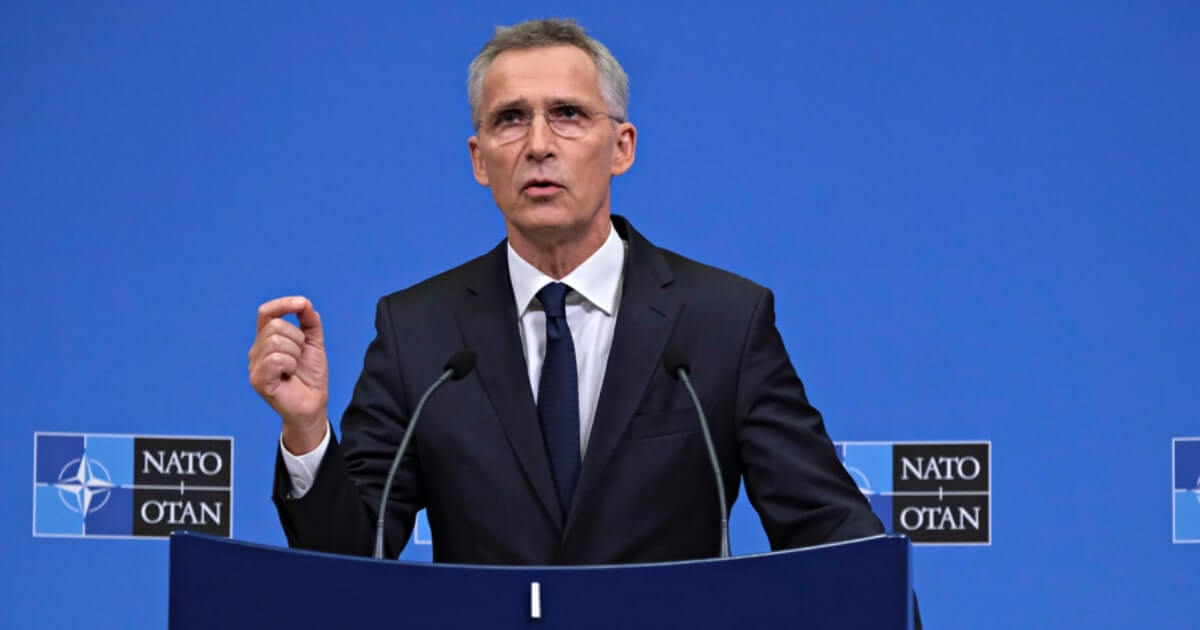Absolute Poverty Rises Amid Debt Distress and Corruption
New humanitarian approaches are vital instead of IMF austerity.
August 7, 2023

A Global Ideas Center, Strategic Intervention Paper (SIP) from the Global Ideas Center
You may quote from this text, provided you mention the name of the author and reference it as a new Global Ideas Center, Strategic Intervention Paper (SIP) published by the Global Ideas Center in Berlin on The Globalist.
Nine Kenyans were killed and more than 300 were arrested by the police in recent protests over what many Kenyans view as draconian government economic policies.
In Lebanon, according to the International Monetary Fund (IMF) – “the nearly four-year economic meltdown has cost the local currency roughly 98% of its value, seen GDP contract by 40%, pushed inflation into triple-digits and drained two-thirds of the central bank’s foreign currency reserves.”
According to a recent headline in the Middle East Eye, “Egypt has hit a financial deadlock. (President) Sisi’s only hope now is a miracle.”
The mounting economic turmoil in many countries, which sees acute difficulties for governments to service their huge foreign debts, is no longer just a financial challenge. More importantly, it is a humanitarian crisis of mounting dimensions.
The only viable solution is massive humanitarian and anti-poverty aid led by the World Bank. But it must have one critical condition: The aid must be independently monitored by civil society watchdogs to guard against theft and corruption.
Economic wreckage and IMF responses
An increasing number of middle and low income countries are facing crushing economic strains. From Argentina to Pakistan to Zambia, living costs are rising, economic growth is stalling and absolute poverty is increasing. At the same time, governments are finding it staggeringly difficult to find ways to pay the interest and principal on their vast foreign debts.
In classic bureaucratic language, the IMF and the World Bank call these the “debt distressed countries.” The truth is that the economic conditions, and the policies that governments feel forced to impose, are gravely adding to poverty.
Dire humanitarian consequences
In a new report, the United Nations Development Program (UNDP) calls for major new foreign aid support to assist foreign debt servicing by developing countries. It notes: “During 2020-2023, we project that 165 million people fell into poverty (with incomes of under $3.65 a day).”
The UNDP adds: “The cost of inaction for dozens of economies currently facing high debt service levels is devastating. Debt service payments are displacing investments in important areas such as health, education and social protection and hindering efforts to mitigate income, job and poverty shocks.”
Causes of distress
Almost all non-oil exporting middle and low income countries have been hit brutally by the combination of the COVID 19 global economic slowdown, sharply rising global rates of interest as the central banks in the United States and Europe have sought to counter domestic inflation and, in many countries, a sharp increase in food prices directly attributable to the Russian invasion of Ukraine.
This problem may become even more acute, given the latest Russian actions to curb Ukrainian food exports. In addition, the governments of many countries have, at times, wasted foreign exchange income, and inefficiently managing inflows of borrowed foreign currency. This contributes to corruption.
For example, corruption has been widely seen as one of the prime causes leading such countries as Sri Lanka, Zambia, Lebanon and Argentina to default on their foreign debt payments.
Making bad choices
The era of low global interest rates that began following the financial crisis of 2008-09 greatly encouraged many governments to borrow funds on international debt markets.
The opportunity to secure higher rates of return on foreign bond investments was very tempting to many international investors. And so countries like Zambia, Albania, Ukraine and Belarus (aided by bankers in London, New York and Zurich) issued so-called “sovereign bonds.”
China and technical “bailouts”
At the same time, Chinese institutions (mostly backed by the government of China) were keen to invest in many developing countries and offered low-interest medium-term loans to governments.
China today is the largest single creditor to many sub-Saharan African countries (as well as to many others). Right now, many countries have to find ways to pay regular interest payments on their foreign debts, and to repay those bond loans that are coming due.
They owe money to international private investors (including in China), to many bilateral official lending institutions in the United States and Europe and Japan as well as to multilateral official lenders like the World Bank and the IMF.
At a meeting of Ministers of Finance in India of the Group of 20 in recent days, there was an attempt to sound upbeat and suggest that the official creditors, including China, are moving closer towards finding common approaches to debt restructuring.
The hard facts
The hard facts are that debt negotiations are proving to be exceedingly difficult and so protracted that the debtor countries face mounting misery as the IMF fails to secure speedy and comprehensive relief.
UNDP points out that 25 developing countries – the highest number in over two decades – are having to spend more than 20% of their total government revenues on servicing external debts. In Kenya, for example, the public protests have been a response to tax increases and income subsidy reductions imposed by the government.
The East African newspaper recently reported that “Kenya is now sitting on a public debt mountain of almost $70 billion or about 67% of gross domestic product (GDP) –and repayment costs have jumped as the shilling sinks to record lows of around 140 to the dollar.”
Unworkable solutions
At times of debt crises, the IMF rides to the recuse as the lender of last resort for governments. They offer money to help governments meet some of their foreign debt payments – but with conditions.
The austerity measures usually demanded by the IMF aim to help the country to reduce any balance of payments deficits, curb public borrowing and restructure domestic finances so that more money is available to meet the demands of foreign creditors.
Striving to help Egypt and Pakistan avoid debt defaults, the IMF recently agreed bail-out loans. For example, the IMF told the government of Egypt that it had to sell many military-owned business to foreign investors to raise foreign money.
To take another example, higher taxes, cuts in public spending (including curbs on energy subsidies) are part of the conditions imposed by the IMF on Pakistan.
The Argentina example
Argentina defaulted on its foreign debts in 2016 – and received the largest bail-out program that the IMF has ever granted. Today, Argentina owes the IMF $44 billion and has no means to repay.
The government has not been able to impose the kinds of austerity programs that the IMF requires – partly because of huge public protests in the face of inflation, which is now around 114%, and partly because of a lack of support for agreed upon measures by influential politicians.
Typical of the IMF’s current approach is its regular meetings with Argentine ministers to shore-up the sick economy. The latest session was on July28 – as the problems keep getting kicked down the road.
Hugo Godoy, a union leader who has organized major public protests, recently told Reuters: “We must change these economic policies, we must break with the dependence on the IMF. Some 43% of Argentines live below the poverty line and 4.5 million, 10% of the population, suffer from hunger.”
Finding humanitarian solutions
The IMF is a financial institution, and so it seeks to address the current massive debt-distress debacle by both encouraging borrowing countries to tighten their belts, while seeking to convince the private and official creditors alike to restructure their loans and provide debt relief.
Getting the Chinese and the other official creditors to even agree on helping a borrowing country is difficult enough. But engaging the private investors at the same time has been endlessly frustrating.
Meanwhile poverty mounts, and an increasing number of economies are falling on hard times. A huge transfer of funds from the world’s wealthier countries to the poorer ones, perhaps $100 billion or even more, has long been under discussion in the corridors of the IMF and was noted at the recent G20 meetings of finance ministers in India.
Such a transfer of funds could be arranged from the IMF’s reserves, and from the holdings by the world’s richest countries by means of so-called Special Drawing Rights. This would indeed produce relief for many economies.
The problem with this approach is that it would, in effect, add to the long-term indebtedness of the borrowing countries unless the transfer of funds was just a gift – most unlikely from the Chinese and the richer nations of the world.
Solutions and band aids
A combination of some transfer of funds, plus agreements to pause demands for immediate debt-serving repayments (plus increases in foreign aid, including World Bank funds, to directly counter the impact of failing economies on the very poor) might all assist the situation.
Yet, this approach is more like providing countries with multiple band-aids, not lasting hope for a brighter future. World leaders at the Group of 20 and the Group of 7 need to start looking at the debt-distress crisis as a humanitarian crisis first and foremost and not assign top priority to the financial challenges.
World Bank and civil society leadership
The World Bank should be in the lead, not playing second fiddle to the IMF. The World Bank needs to formulate a comprehensive new development approach that places reducing absolute poverty and assisting in major ways to support sustainable environmental policies at the top of the agenda. This will mean huge amounts of new long-term World Bank lending, plus very large amounts of grant aid.
I believe the Bank’s brand new President, Ajay Banga recognizes this, and is developing new plans and programs. As he has recently indicated: “the Bank must adopt a new vision and mission that is worthy of our shared aspirations. In my view, the vision for the World Bank is simple: to create a world free of poverty on a livable planet.”
To succeed, President Banga must both find ways to mobilize an unprecedented amount of cash to support developing countries, including funds and mechanisms to reduce their external debts, while ensuring that the assistance does not just flow into the personal coffers of corrupt regimes – be they in Pakistan or Sri Lanka or Egypt or other countries with huge economic difficulties today.
It is long overdue that the World Bank starts to strongly support civil society organizations and investigative journalists in developing countries. It needs them to serve as the eyes on the ground that ensure that sound policies are put in place with transparency, accountability and integrity. Governments need to be told that this is a minimum condition for massive World Bank support at this time.
What is needed is a new humanitarian approach to debt-distress that places sustainable economic growth and transparency at the front. The era when IMF-austerity programs were seen as the solution, and where conditions for IMF loans are negotiated behind closed doors between international bureaucrats and the senior assistants to kleptocrats regimes, needs to end.
Takeaways
An increasing number of middle and low income countries are facing crushing economic strains. From Argentina to Pakistan to Zambia, living costs are rising, economic growth is stalling and absolute poverty is increasing.
The governments of many countries have wasted foreign exchange income and inefficiently managed inflows of borrowed foreign currency. This contributes to corruption.
The austerity measures demanded by the IMF aim to help a country to reduce any balance of payments deficits, curb public borrowing and restructure domestic finances.
It is long overdue that the World Bank starts to strongly support civil society organizations and journalists in developing countries. It needs them to serve as the eyes on the ground that ensure that sound policies are put in place with transparency, accountability and integrity.
The era of IMF austerity programs being seen as the solution and IMF loans being negotiated behind closed doors between international bureaucrats and the senior assistants to kleptocratic regimes needs to end.
A Global Ideas Center, Strategic Intervention Paper (SIP) from the Global Ideas Center
You may quote from this text, provided you mention the name of the author and reference it as a new Global Ideas Center, Strategic Intervention Paper (SIP) published by the Global Ideas Center in Berlin on The Globalist.


